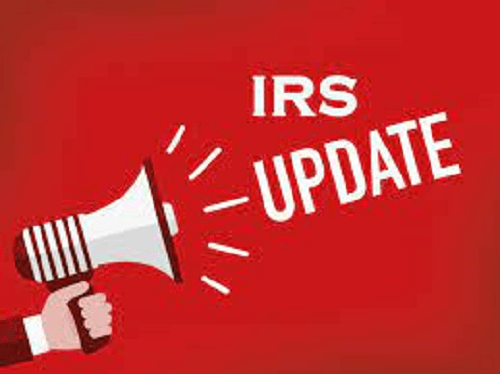
8.11.21 – Mitch Reitman – Reitman Consulting Group
INFRASTRUCTURE BILL WOULD END THE EMPLOYEE RETENTION CREDIT
The infrastructure bill passed by the U.S. Senate on August 10th would end the employee retention credit (ERC) early, making wages paid after Sept. 30, 2021, ineligible for the credit (except for wages paid by an eligible recovery startup business).
Many businesses have taken advantage of the ERC, which was created by the Coronavirus Aid, Relief, and Economic Security (CARES) Act, P.L. 116-136,. The American Rescue Plan Act, P.L. 117-2, enacted March 11, made the ERC available to eligible employers for wages paid during the third and fourth quarters of 2021; however, the proposed House Infrastructure Bill (H.R. 3684) The ERC allows eligible employers to take credits against payroll taxes in an amount equal to 50% of the first $10,000 of quarterly wages paid to certain employees. The amount was increased to 70% of the first $10,000 of quarterly wages for 2021. If the Credit exceeds the employer’s tax liability it is refundable, meaning that the company could either apply it to future periods or opt to receive a check for the amount. H.R. 3684 would repeal that extension. The IRS issued guidance last week on claiming the credit in the third and fourth quarters of 2021 (Notice 2021-49), but noted in that guidance that it is watching this legislative development.
We have assisted numerous clients in obtaining over $10 million in ERC’s and will monitor the affect of the Bill closely.
IRS NOTICES, LIENS, AND LEVIES
The IRS collection division is recovering from pre-pandemic lockdowns and began sending out letters from the Automated Collection System function in June. They also restarted the income tax levy program in July. In addition, responsible officers continue to work on nonfiler cases and are sending out notices and billing notices; however, their focus is primarily on egregious cases, such as high-income non-filers.
According to an IRS spokesperson “There’s still a backlog of paper, and until that’s cleared there will be people that efiled and mailed in their check, the check cleared, but they get notices saying they never paid. That’s the downside of restarting the program. They have to do it because otherwise people will get complacent when they think there’ll be no repercussion for not paying.”
“The phone lines are still backlogged due to taxpayers not getting their refunds,” he explained. “They have to go through manual processing, mostly for returns that had additional stimulus funds. Because of time constraints, the IRS didn’t have time to fully reconfigure their computers to recalculate the additional credits due for the additional stimulus money.
This year continues to be unique and filled with issues. The IRS has hired over 3,200 employees to cover attrition and to increase staffing. As the IRS is attempting to reduce the backlog, the Austin and Fresno Service Centers have been tapped to help process Forms 941. As of mid-July, approximately 1.8 million forms have not yet been processed. For returns prior to 2021, 11,000 are still in inventory. These figures are for Form 941 returns — they don’t include Form 940, or Form 941X amended returns. This problem is a large issue because many companies qualified for the Employee Retention Credit and are waiting for these returns to be processed so that they can receive their tax credit refunds.
If you receive a notice from the IRS that you believe is incorrect, don’t have a heart attack, but don’t disregard it either. Contact your tax professional or call us so that you can respond properly and timely. You should also call (or have your professional call) and request a collections hold on your account. This will keep you from a surprise lien or levy and the accompanying headaches that come with them.
IRS FORMS OFFICE OF PROMOTER INVESTIGATIONS
The IRS has formed the Office of Promotor Investigations his is a newly created service-wide office headed by a 20-year veteran of the service. This group is tasked with agency-wide compliance issues, including coordination of promoter activities with other business divisions, including Large Business & International, Tax Exempt/Government Entities, Office of Fraud Enforcement, and Criminal Investigations. “The office will use data analytics and operate like a think-thank to identify promoter behavior prior to auditing returns. They will focus on practitioners, with the intention of identifying tax schemes as early as possible. “
With many of the COVID relief programs being assigned to the IRS, numerous promoters and other organizations have sprung up. They offer to obtain COVID relief for a percentage. While some are legitimate, many are taking advantage of overwhelmed IRS staff to obtain relief for companies that do not qualify for or obtaining amounts greater than the taxpayer may be entitled to. Some may claim correct amounts, but fail to provide the necessary documentation to substantiate the credit or refund in an audit, leaving a company with a repayment obligation, fines, and interest. By this time the promoter may be long gone.
If you are contacted by a firm offering to assist you to obtain a COVID relieve or loans, think twice, especially if they charge a contingent fee. Call your tax professional or us and get reliable, advice and not a sales presentation.
Mitch Reitman is the Managing Principal of Reitman Consulting Group. He can be reached at MReitman@Reitman.US.
